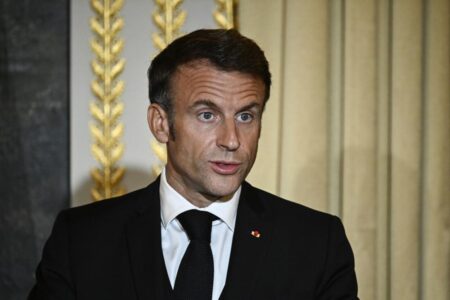Macron’s Commitment to Uncovering Haiti’s Colonial Legacy: A Call for reparations
In a important diplomatic gesture,French President Emmanuel Macron has committed to revealing the historical truths surrounding Haiti’s colonial past and the enduring consequences of its independence ransom—a financial burden imposed by France after Haiti’s struggle for freedom. This declaration comes in response to increasing demands from Haitians and descendants of enslaved individuals for reparations, as the effects of colonialism continue to loom large over this Caribbean nation. As Haiti confronts its challenging history and seeks justice for past injustices, Macron’s promise of open dialog signifies a broader reckoning with the painful legacy of colonial exploitation. This article delves into the intricacies of reparative justice, examines the implications of macron’s remarks, and highlights Haiti’s fervent calls for recognition and restitution.
Acknowledging Historical Wrongs: The Demand for Reparations
In a pivotal moment in Franco-Haitian relations, President Emmanuel Macron has openly recognized the historical injustices resulting from France’s colonial governance and its aftermath. By addressing long-standing grievances, he acknowledged the heavy financial toll on Haiti due to an indemnity imposed in 1825 that required it to pay reparations to France following its independence. His statements aim at fostering dialogue and healing while marking a crucial shift in how France narrates its historical involvement with Haiti.
Despite this acknowledgment, manny Haitians remain skeptical about Macron’s intentions, arguing that mere words are inadequate. activist groups persistently advocate for tangible reparations as essential measures needed to address centuries of exploitation faced by Haitian people. Thier key demands include:
- Direct Financial Compensation: Addressing historical debts incurred by Haiti.
- Infrastructure Investment: Supporting efforts aimed at revitalizing Haiti’s economy.
- Educational and Healthcare Support: Contributing towards long-term advancement initiatives.
This growing movement reflects not only a call for justice within Haiti but also resonates globally among former colonies seeking recognition of their historical grievances.
The Enduring Impact of Independence Ransom: A Call for Accountability
The weighty legacy left by Haiti’s independence ransom continues to hinder national development and impede justice efforts. The 150 million franc indemnity mandated by France in 1825—intended as compensation for lost property including enslaved individuals—remains a source of anger among Haitians today. While there is an acknowledgment from French authorities regarding this dark chapter in history, many believe that mere recognition falls short; they seek genuine reparative actions that pave pathways toward healing from such profound trauma.
To effectively tackle this enduring legacy requires collective international action focused on:
- Financial Restitution: Direct payments aimed at funding essential services within Haitian society.
- Debt Cancellation: Erasing foreign debts accrued due to indemnities.
- Infrastructure Development: Investing resources into rebuilding resilient infrastructure capable of withstanding natural disasters.
- cultural Preservation Initiatives: Programs dedicated towards safeguarding Haitian cultural heritage.
Implementing these measures is vital not only in restoring dignity but also establishing equity within a nation striving against its tumultuous past—a model that could inspire other nations grappling with similar histories.
Charting Paths Toward Recovery: France’s Role in Economic Revitalization
The historic ties between France and Haiti continue influencing economic conditions within this Caribbean nation significantly.Following independence, it was encumbered with onerous reparation obligations imposed by France which have had lasting repercussions on its economy. Recently, President Emmanuel Macron emphasized the necessity for honest discussions regarding these troubling aspects; though, many Haitians perceive such acknowledgments as insufficient given their ongoing economic hardships today.
France must now play an active role beyond mere dialogue; actionable commitments are necessary if enduring growth is ever going to be realized within Haitian society. Key areas requiring focus include:
- Debt Relief Initiatives: Alleviating fiscal pressures enabling investment into critical infrastructure projects.
- Equitable Trade Partnerships: Establishing trade agreements beneficially impacting both nations involved.
- Development Assistance redirected towards Vital Sectors like education healthcare agriculture.
The international community must recognize that fostering stability through collaborative efforts can led toward genuine recovery—one which acknowledges past wrongs while actively working towards building prosperous futures together.
Conclusion
The ongoing discourse surrounding issues related to Haiti’s independence ransom evokes strong emotions alongside urgent calls demanding justice across various platforms worldwide. While President Emmanuel Macron’s acknowledgment marks progress toward confronting these issues historically rooted deep within Franco-Haitian relations—it remains clear among many Haitians that recognition alone does not suffice without accompanying actions leading toward meaningful restitution or accountability measures being implemented effectively moving forward into future engagements concerning their plight against colonial legacies still felt today throughout society at large globally speaking too!




